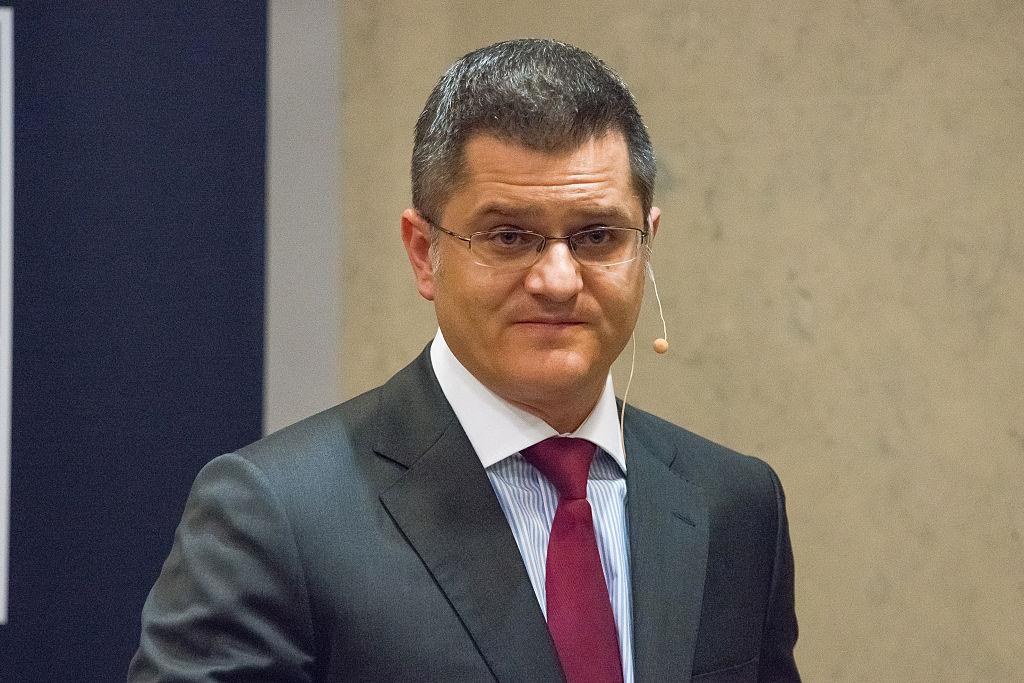
TIME foreign affairs columnist Ian Bremmer is sitting down with the candidates to be the next UN Secretary-General. Here is his Q&A with Vuk Jeremic, Serbia’s former Foreign Minister.
What is the single most important thing that a UN secretary general can do to make the United Nations a more effective institution?
Acting decisively to end business-as-usual at the UN. To be clear and transparent as to what I mean by that, I’ve produced a detailed policy platform containing 53 specific commitments that I intend to implement from Day One. No candidate for SG has ever done this before. But do I believe that without a clear vision and concrete plan of action, there can be little hope for the UN to meet the expectations of humanity in the 21st century.
What aspect of the UN’s work do you believe is in greatest need of reform?
To be honest – many, but let me focus on one: the UN’s conflict prevention and peace operations capacities need to be overhauled. We must upgrade the UN’s pool of peacemakers and high-level envoys, who will be able to help stave off wars under increasingly complex global circumstances. We also need to establish a new generation of more robust UN stabilization missions that can be deployed wherever a need arises, with updated rules of engagement and a stronger civilian component.
You’ve written of the need to enhance the UN’s counter-terrorism capacity. What can the UN do to more effectively to combat terrorism?
Different people are now in charge of various aspects of the UN System in this field, which creates confusion. So first, we need to have one UN official responsible for counter-terrorism related activities. Second, we need to create expert counter-terrorism advisory teams that may be deployed to provide assistance to countries that ask for it. Third, the UN should use its unique convening power to bring together national and religious leaders, community groups, and communications and technology experts to develop cross-border strategies to counter extremist propaganda.
As a citizen of Serbia, what do you believe are the most important lessons the UN should take from its failings in the former Yugoslavia during the 1990s?
As a young man, I witnessed the failure of diplomacy, the absence of the rule of law, and the sudden surge in poverty in my country. I fought for democracy and human rights, and worked hard for reconciliation. As a candidate for Secretary-General, I’ve stressed the importance of addressing these issues globally. We all remember the tragic failure to defend UN “save havens,” which is why we need to strengthen UN peacekeeping. We also need to enhance the UN’s early warning systems for preventing genocide and other mass atrocity crimes.
No institution can be all things to all people. What things do you believe the UN should avoid trying to do?
There’s a perception that the UN oversteps its boundaries and competences, especially in the developing world. The next Secretary-General will need to support the ambitions of regional organizations that want to work with the UN as genuine partners. The African Union is one example, and so I’ve proposed a New Deal for African Peace Operations. The UN will have to work closely with African leaders on concrete plans to transition a range of security responsibilities to the AU.
Beyond the use of new tools of communication, what can the secretary general do to engage more young people around the world in the UN’s work?
Young people want to live in a safer and cleaner world, with more employment and educational opportunities. This goes to the heart of why the UN needs to make the fulfillment of the sustainable development goals (SDGs), especially those related to climate change, its top strategic priority. We’ve got to better understand young people’s priorities and empower them to contribute their ideas at all levels. They’re the future, and they need to have a greater say in how it’s shaped.
More Must-Reads From TIME
- The 100 Most Influential People of 2024
- Coco Gauff Is Playing for Herself Now
- Scenes From Pro-Palestinian Encampments Across U.S. Universities
- 6 Compliments That Land Every Time
- If You're Dating Right Now , You're Brave: Column
- The AI That Could Heal a Divided Internet
- Fallout Is a Brilliant Model for the Future of Video Game Adaptations
- Want Weekly Recs on What to Watch, Read, and More? Sign Up for Worth Your Time
Contact us at letters@time.com